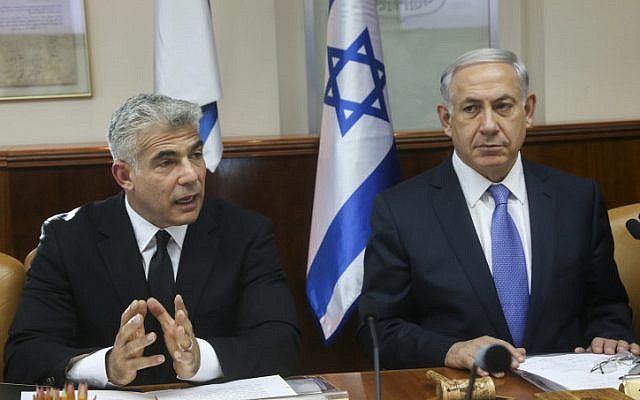Israel Hails ‘Historic’ Agreement With Lebanon; Netanyahu Strongly Disagrees
Security experts decry dangerous precedent in which Israel has seemingly surrendered in the face of Hezbollah threats.

The common Israel-Lebanon maritime boundary is not agreed upon between the two countries. The issue has been under discussion for over a decade. The focus of both sides is the oil and gas discoveries in the territorial waters which are under dispute.
In recent years, the two countries held talks, mediated by the US and hosted by the Office of the United Nations Special Coordinator for Lebanon (UNSCOL) at Rosh Hanikra. Amos Hochstein, the Biden administration’s Special Envoy for International Energy, is currently serving as mediator. He has traveled between Jerusalem and Beirut in recent weeks, and while expressing optimism, has not brought any final resolution.
Hulata’s announcement appears to put an end to the negotiations.
“We protected Israel’s security interests and are on our way to an historic agreement,” he claimed.
According to reports in the Arabic media, the Karish field, which Israel has recently begun to develop, will remain in Israeli hands, while the nearby Kana field will be fully in Lebanese territory, an apparent massive Israeli concession.
The agreement is facing fierce opposition in Israel.
Hezbollah’s Secretary-General Hassan Nasrallah has threatened to attack Israel several times in recent weeks over the control of the gas fields.
 Hezbollah's leader Hassan Nasrallah has threatened war if the deal was not reached
Hezbollah's leader Hassan Nasrallah has threatened war if the deal was not reached
IDF Brigadier General (Res.) Amir Avivi, Founder and CEO of the Israel Defense and Security Forum (IDSF) – Habithonistim movement, told Israel Radio on Tuesday that “this is a dangerous precedent in which Hezbollah threatens us – and we are retreating to the Lebanese positions with tremendous speed before elections. Hezbollah, for its part, brought Israel to its knees.”
The details of the agreement have yet to be published in Israel. Neither the government nor the Knesset have discussed it. Several organizations have said they will challenge Prime Minister Yair Lapid’s decisions on the issue in court, noting that as head of a transitional government he has no mandate to make such decisions and that the shaping of Israel’s borders requires a national referendum by law.
Opposition leader and former Prime Minister Benjamin Netanyahu, who according to the latest polls will form the next government after the November elections, stated Monday that “behind the backs of the citizens of Israel and the Knesset, Lapid and [Defense Minister Benny] Gantz surrendered to Hezbollah’s blackmail.”
“They are transferring strategic assets of the State of Israel to Hezbollah in a liquidation sale. Hezbollah will use billions of the gas revenues to arm itself with missiles and rockets against the citizens of Israel, and Iran will position itself in front of Rosh Hanikra and in front of Israel’s gas reserve,” he warned.
“This weak and amateur transitional government has no mandate to make such a dangerous decision in the dark, just days before the elections,” he added.
He has previously stated that any such agreement signed by the Lapid government is illegal and will not be respected by his government.

No comments:
Post a Comment